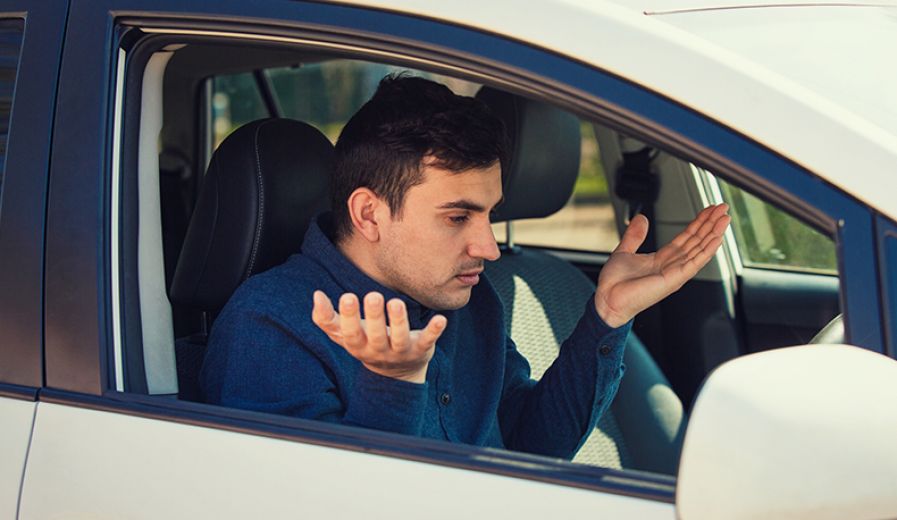There are various reasons why you'll experience stuttering or jerking and it may not be accompanied by car dashboard warning lights.
Many causes of car juddering or hesitation are not serious and can be fixed quickly and cheaply. However, on occasions, stuttering when accelerating can be a sign of a problem with your car and will require a trip to a trusted garage or a visit from a mobile mechanic.
In this know how guide, we look at some of the most common reasons why your car might shake, judder, jerk or stutter.
Reasons why your car is jerking or stuttering when accelerating
Reasons why your car jerks while accelerating can include:
Spark plugs: Worn-out spark plugs, or the electrical cables attached to them, are one of the most common causes of stuttering. A deficient spark plug causes the engine to misfire, making your car jerk when you accelerate.
Fuel injectors: Dirty or malfunctioning fuel injectors can disrupt the fuel delivery and often result in the vehicle stuttering or jerking at low speeds.
Fuel filter: A clogged, or worn-out fuel filter can impact fuel delivery and result in performance issues, particularly at low speeds.
Catalytic converter: A clogged catalytic converter is another reason why a car jerks while accelerating, as a blockage can disrupt the exhaust system’s airflow. When you press down on the accelerator pedal, you may notice a delay in your car’s response. There may also be a rotten egg smell. If you need exhaust repair then the RAC can help.
Transmission fluid: Contaminated or low transmission fluid can impact acceleration, especially if the fluid is old.
How to fix car juddering or stuttering when accelerating
If the issue is something as straightforward as faulty spark plugs, you may have the know-how to change them yourself. You may also be able to unclog minor blockages with a good catalytic converter cleaner.
But if you don’t understand the mechanics of your car very well or it’s a more serious blockage, it’s best to seek expert help.
Check out our RAC Approved Garage Network to find a mechanic you can trust. It only includes garages that provide quality work and exceptional customer service, giving you peace of mind if your car needs attention. Most repairs can even be carried out by a mobile mechanic right on your driveway.
Why is my car juddering when pulling away?
If your car judders when you are pulling away then it would suggest a problem with your clutch.
It could be due to worn-out friction material or a pressure plate defect (or combination of both). It could also be caused by an oil leak contaminating the clutch plate.
How to fix car juddering when pulling away
If there is a fault with the clutch, you will need to find out whether it’s a mechanical issue or whether the clutch facing has been contaminated. This is best left to a professional to deal with.
Replacing a clutch is a specialised repair, so take your car to a reliable garage to get the work carried out.
Get a service or repair at home
RAC Mobile Mechanics can come to you, saving you the hassle of going to a garage.


Why is my car juddering at low revs?
Possible causes for juddering at low revs include:
Distributor cap: Moisture in the distributor cap can make a vehicle jerk when accelerating at low speeds or low revs. If your car is parked overnight in cold temperatures, condensation can form inside the distributor cap, causing the engine to misfire when accelerating at low speeds.
Engine mounts: A problem with the engine mounts can result in car judder. The mounts hold the engine in place to the chassis. A mounting that is loose, worn or broken will cause your car to vibrate at low revs.
How to fix car juddering at low revs
If the engine mounts need replacing, we recommend getting an approved mechanic to do this because the engine needs to be securely supported from underneath while it’s being fixed.
Moisture problems can be resolved by parking your vehicle in a garage or outside porch (this will help to prevent moisture from forming). If you have to park your car on the street, a thermal cover can help to reduce the risk of condensation.
Why is my car juddering when idle?

Does your car's engine judder when idling at traffic lights and junctions, and sometimes feels like it’s going to stall? It could be a fault with the spark plugs or a build-up of dirt and grime.
A clogged filter or fuel injection system can also starve your engine of fuel or oxygen, causing your car to judder and shake.
As a car ages and racks up thousands of miles of wear and tear, the valves can become blocked with sludge. If your engine doesn’t get an even and continuous distribution of clean fuel, it can start to shake or shudder while it idles.
If the judder only happens when idling, it could be a small leak on the vacuum side of the engine, or a worn-out electrical component such as the crankshaft sensor.
How to fix car juddering when idle
Unless you’re a professional mechanic, don’t attempt to replace components yourself. Your garage can have a look under the bonnet and run diagnostics tests to find the root cause of the problem.
Book an MOT with the RAC today
As a preventative measure to keep your car running smoothly in future, regularly check your engine for signs of dust and dirt clogging up the system, and make sure you have your car serviced once a year or every 10,000-12,000 miles.
Occasionally, things do go wrong while you’re out on the roads, so be sure to have the correct breakdown cover in place just in case.
Why is my car juddering when driving at speed?
There are a range of reasons why your car is juddering at speed. Your vehicle could have dirty fuel injectors, a damaged fuel pump, a blocked catalytic converter, a faulty mass airflow sensor, broken spark plugs, or even an accumulation of moisture.
How to fix car juddering when driving at speed
If it is just a bit of dirt or some moisture, then the best thing to do is clean the areas in question and apply the necessary lubricants.
However, if it is a more serious issue, then you will need to see a mechanic to get it fixed.
Over time some parts of your vehicle will need replacing, so visiting a trusted garage is key.
Why is my car juddering when braking?
The reason why your vehicle is shaking when braking may be due to:
Uneven thickness or the deformation of the brake discs can cause juddering under braking. In order for the brakes to work smoothly, there needs to be a uniform thickness of the disc to avoid unwanted friction.
Poorly fitted brake discs can also result in juddering, with misalignment resulting in vibration and poor brake performance.
Worn or faulty brake pads can also result in juddering. One of the most common causes of brake pad judder is age or wear, with heavily worn brake pads sticking, resulting in judder when you press the brake pedal.
How to fix car juddering when braking
If you catch this issue before it gets worse, you can clean both the disk and the surrounding surface – however, this is a temporary fix and after some time they will need replacing.
Should the disk be damaged, it can be very dangerous to drive your vehicle. Get it replaced as soon as possible.
Why is my car juddering when I am changing gears?
Clutch problems can cause a car to judder in first gear, with a pressure plate problem or wear the likely cause. If there is a leak within the clutch system then this may contaminate the clutch plate surface and result in juddery or jerking acceleration.
If the transmission fluid is low or has become contaminated then this can also result in juddering when changing gears. Alternatively, the problem may be linked to a faulty sensor or problematic gearbox vacuum.
Why is my diesel car juddering when driving?
Having a diesel-powered vehicle comes with its own set of potential issues – and having a juddering car is a common problem. The most common reason why your diesel car is juddering while you are driving is due to clogged fuel injectors.
How to fix diesel car juddering when driving
This is a relatively easy fix. Remove the fuel injectors, give them a clean, wipe around the area they sit in the vehicle, insert the injectors, and then restart the vehicle.
Why is my car shuddering when driving?
Car shuddering can be caused by problems with your wheels or tyres. For example, if you have incorrect tyre pressure or balance, it can lead to shuddering and uneven tyre wear.
Over time, incorrect tyre pressure or balance can also lead to loose lug nuts which can also lead to shuddering.
How to fix car tyres that cause shuddering
Get your vehicle wheels realigned or your tyres replaced. This can be very easily done by heading over to RAC Tyres.

SALE – up to 40% off*
Roadside & Recovery from £5.29 a month*
• Cheaper than AA Price Promise or we’ll beat by 20%^
• We get to most breakdowns in 60 mins or less
• Our patrols fix 4/5 breakdowns on the spot











